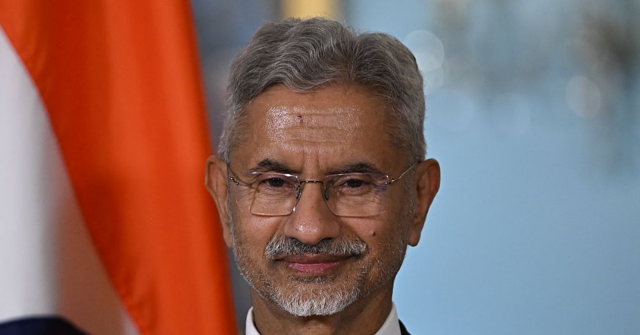Indian Foreign Minister Subrahmanyam Jaishankar on Tuesday met with his Chinese counterpart Wang Yi, and dictator Xi Jinping, on the sidelines of the Shanghai Cooperation Organization (SCO) summit in Beijing.
Jaishankar has not visited China in six years, so his trip to Beijing for the SCO foreign ministers’ event was taken as a sign of healing relations between India and China. Prime Minister Narendra Modi got the healing storyline rolling by meeting with Xi on the sidelines of another multilateral summit, the BRICS meeting in October 2024, two days after India and China signed a deal to back down from hostile confrontations along their unstable border in the Himalayas.
India and China are regional rivals in several fundamental respects, but relations between them frayed after a string of border clashes in the Himalayas in 2020. Both countries disarmed their troops to keep the conflict from escalating, so their border skirmishes were bizarre hand-to-hand brawls using improvised weapons.
After meeting with China’s foreign minister, Jaishankar praised both countries for making “good progress in the past nine months for the normalization of our bilateral relations.”
“Stable and constructive ties between India and China are not only to our benefit, but that of the world as well. This is best done by handling relations on the basis of mutual respect, mutual interest, and mutual sensitivity,” he said.
Jaishankar slipped in some digs at China’s restrictive trade policy, while avoiding mention of the tariffs proposed by President Donald Trump against both India and China.
“As neighboring nations and major economies in the world today, there are various facets and dimensions of our ties. Measures toward normalizing our people-to-people exchanges can certainly foster mutually beneficial cooperation. It is also essential in this context that restrictive trade measures and roadblocks are avoided,” he said.
Jaishankar also stressed the importance of Indo-Chinese cooperation on “terrorism, separatism, and extremism,” which he noted was a primary goal of the SCO.
“This is a shared concern and India hopes that zero tolerance for terrorism will be strongly upheld,” he said.
India has a few specific examples of terrorism that it would like the rest of the world to have zero tolerance for, including the Islamist killers based in Pakistan who slaughtered tourists in the Kashmir region in April — bringing India and Pakistan to the brink of war — and the Sikh separatists of the Khalistani movement. India’s treatment of the latter as a major threat to national security has caused diplomatic tensions with other countries where Sikhs live, most notably Canada.
There are some Sikh communities in China. Last year, Facebook’s parent company Meta exposed an influence network operating out of China that attempted to exacerbate divisions between Sikhs and the Indian government.
Indian representatives are currently working to finalize a trade deal with the United States before President Trump’s delayed tariffs take effect on August 1. China has been much less eager to make a deal. Beijing has been producing economic data crafted to make it appear that U.S. tariffs are having no effect on China’s export-based economy, despite considerable evidence to the contrary.
India and China would have a common interest in Trump’s proposed sanctions on Russian oil since both of them buy large amounts of it. China is the top customer for Russian oil, buying at least 2 million barrels per day (bpd). India is not far behind with 1.8 million bpd. India and China combined are taking more than 86 percent of the deeply discounted oil Russia ships by sea.
Trump said on Monday he would impose “secondary tariffs” of up to 100 percent on countries that continue to buy energy, agriculture, or military products from Russia if Moscow does not end its invasion of Ukraine within 50 days.
If Trump makes good on this threat, it could rattle the entire structure of alternative trade and financial arrangements Russia created to absorb the impact of Ukraine sanctions. India and China provide an obvious financial lifeline by guzzling all the cheap oil Russia can pump. Turkey and Brazil buy a great deal of Russian oil as well. The United Arab Emirates (UAE) handles financing for the Russian oil trade.
Russia placed a heavy bet by rejecting Trump’s sanctions threat as “unacceptable.” That position will only remain tenable if India and China ignore Trump’s secondary sanctions and keep buying Russia’s oil. Neither of them will want to give up their supply of affordable fossil fuels, but China is more likely than India to defy the sanctions — unless India is ready to give up its decade-long effort to build a stronger relationship with the U.S. and pivot completely to the Russia-China axis.
The prime ministers of India and China may not have publicly discussed these topics after meeting at the SCO summit, but it is highly likely New Delhi and Beijing are exploring what they will do if the U.S. tries to hinder the flow of Russian oil.
Read the full article here


